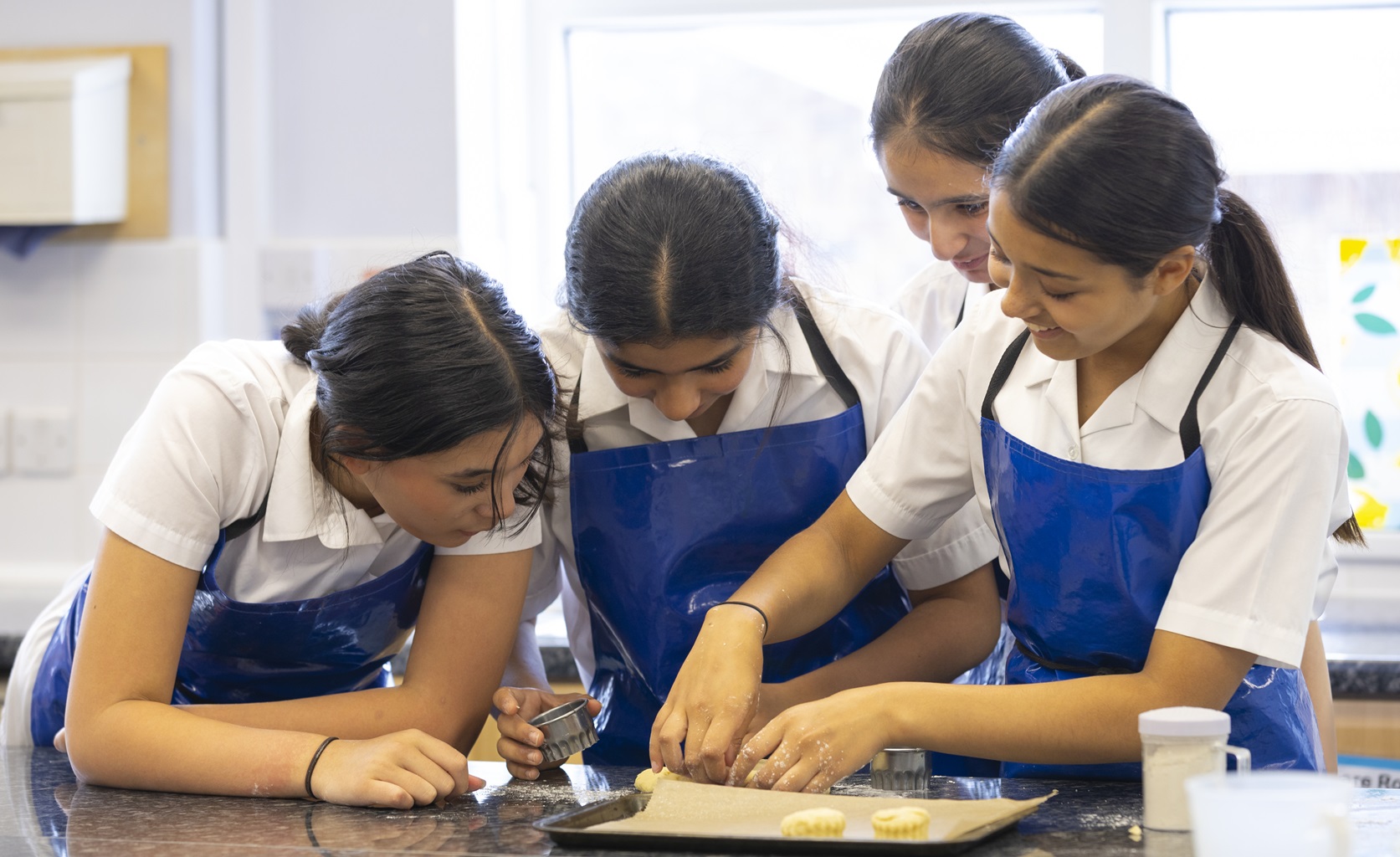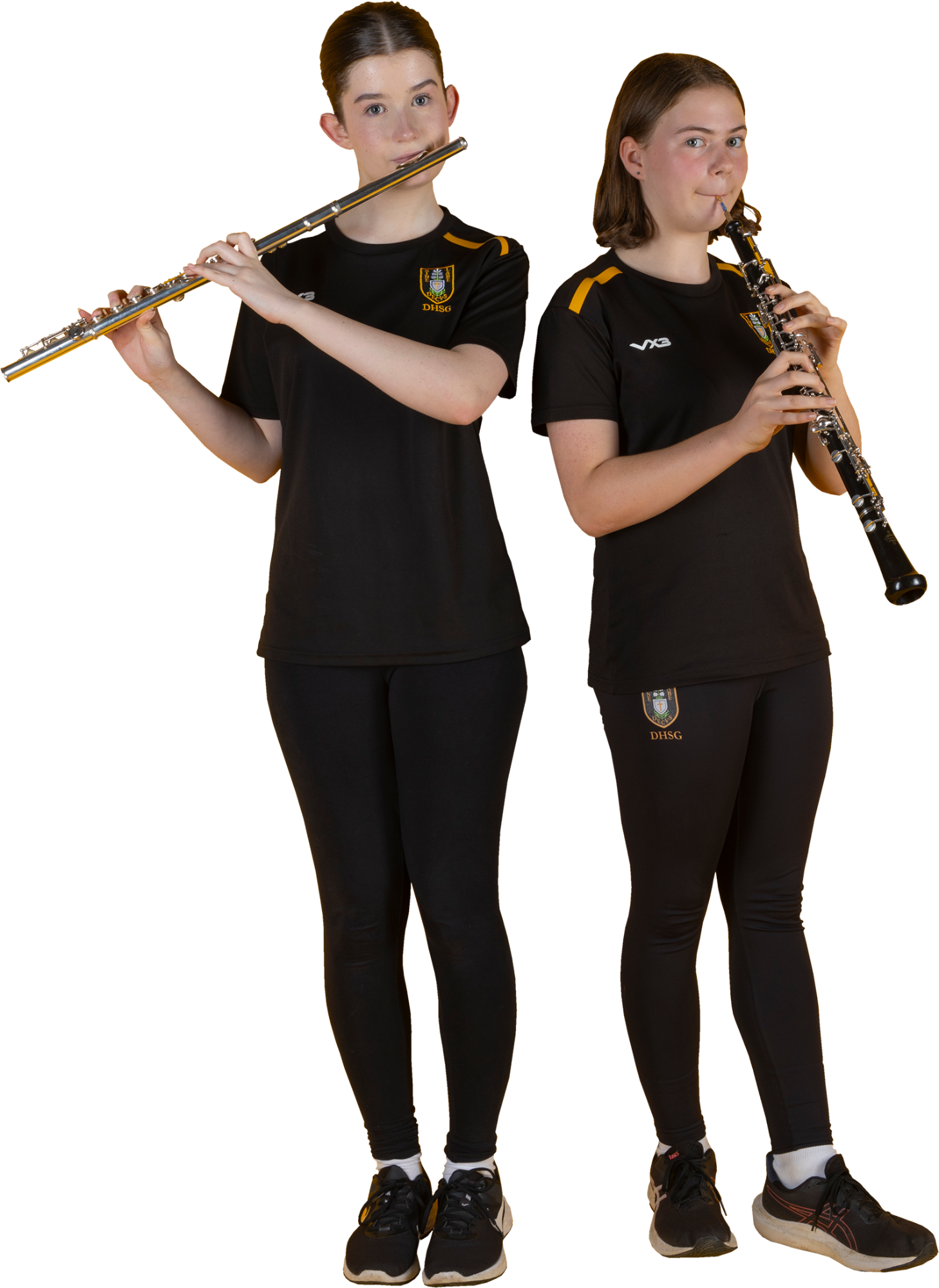Food Preparation and Nutrition
Food Preparation and Nutrition
Head of Department
Mrs J Tribe, BEd (Hons)
Statement of Intent
Food Preparation and Nutrition at Devonport High School for Girls is a highly enjoyable, creative subject where practical activities are a central part of learning. We aim to inspire and challenge our students to try out new skills and encourage confidence and independence. Personal organisation and an ability to plan and think ahead are essential qualities that we work hard to develop. Students are encouraged in lessons to make decisions, think independently and evaluate their work. Resilience and problem-solving are essential skills for making excellent progress and enabling students to reach their full potential. We want everyone to be proud of their achievements in Food Preparation and Nutrition which not only allows them to express their creativity but also equips them with crucial life skills.
‘First we eat, then we do everything else!’ MFK Fisher (American food writer)
In Food Preparation and Nutrition students will gain core knowledge of the importance of nutrition and the impact of food on health. Students will develop an awareness of where food comes from, seasonality and the impact food has on the environment. Initially, in the lower years students will make various predominantly savoury dishes that enable them to practise a wide range of basic food preparation techniques and to use the cooker and small equipment correctly, safely and independently. We aim to foster a love of cooking and promote confidence in our students in their ability to prepare healthy and nutritious meals. The principles of food hygiene are essential and are regularly reinforced. Initially in the lower years, the UK’s healthy eating model is introduced followed by a more detailed focus on teenage nutrition. In the middle years we follow the AQA Food Preparation and Nutrition GCSE which focusses on 5 key areas: food nutrition and health, food science, food safety, food choice and food provenance. Food preparation skills are practised throughout the course. Food Preparation and Nutrition links with knowledge and skills in other subjects such as Geography and Science when we cover topics such as fairtrade, seasonality, food miles, nutrition and food spoilage. The course equips students with the skills to make informed decisions about a wide range of further learning opportunities and career pathways and opportunities for challenge are embraced.

Curriculum Programmes of Study
|
Year |
Cycle |
Content |
|---|---|---|
|
Year 7 |
Cycle 1-3 |
Nutrition and Health
Food Science
Food Hygiene and safety
Food Choice
Food Provenance
Food Preparation Skills
Preparation of a variety of dishes: Cous-cous salad, Fruit or veggie crumble, Flapjack, 5-a-day Pizza, Bread and butter pudding – sweet or savoury, Savoury muffins, Beef or bean burgers, Reduced sugar cakes, flavoured and shaped bread rolls. |
|
Year 8 |
Cycle 1-3 |
Nutrition and Health
Food Science
Food Hygiene and safety
Food Choice
Food Provenance
Food Preparation Skills
Preparation of a variety of dishes: Pasta bake, fresh pasta (group practical), bolognese sauce/chilli, lentil and vegetable soup with cheese scones, Vegetable quiche, Chicken and leek or vegetarian pot pie, Salmon fish cakes or falafel burgers, main meal dish of choice suitable for teenage main meal, fruity muffins. |
|
Year 9 |
Cycle 1 |
|
|
Cycle 2 |
|
|
|
Cycle 3 |
|
|
|
Year 10 |
Cycle 1 |
|
|
Cycle 2 |
|
|
|
Cycle 3 |
|
|
|
Year 11 |
Cycle 1 |
|
|
Cycle 2 |
|
|
|
Cycle 3 |
|
Lower Years Assessment Framework
To view the Lower Years Assessment Framework for Food and Nutrition, please click here
Middle Years Exam and Specification Information
Paper 1: Food preparation and nutrition
Theoretical knowledge of food preparation and nutrition from Sections 1 to 5.
Written exam: 1 hour 45 minutes
100 marks
50% of GCSE
Non-exam assessment (NEA)
Task 1: Food investigation (30 marks)
Task 2: Food preparation assessment (70 marks)
Full details of the specification and assessment criteria can be found on the AQA website GCSE Food Preparation and Nutrition Specification
Extra-curricular activities
Students are encouraged to take part in a variety of enrichment activities led by the Design and Technology department, including competitions such as the Young Chef Team challenge and the Rotary Young Chef of the Year.

